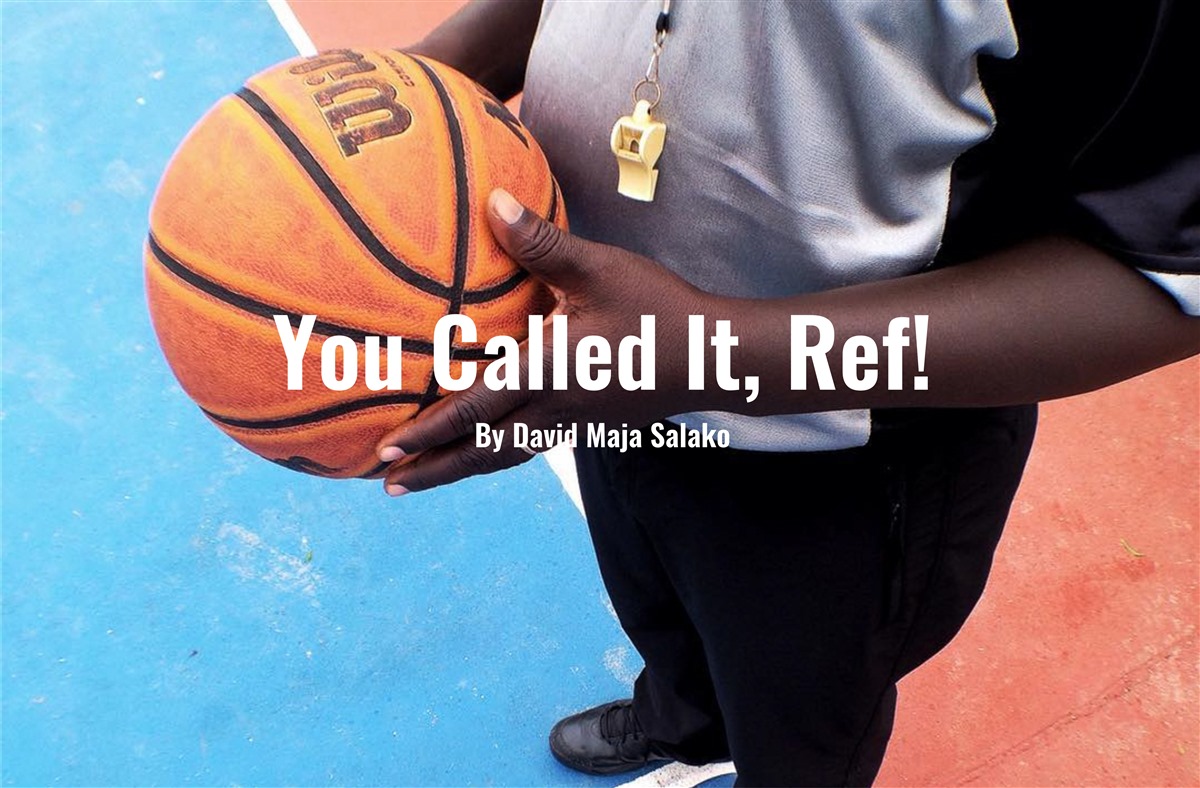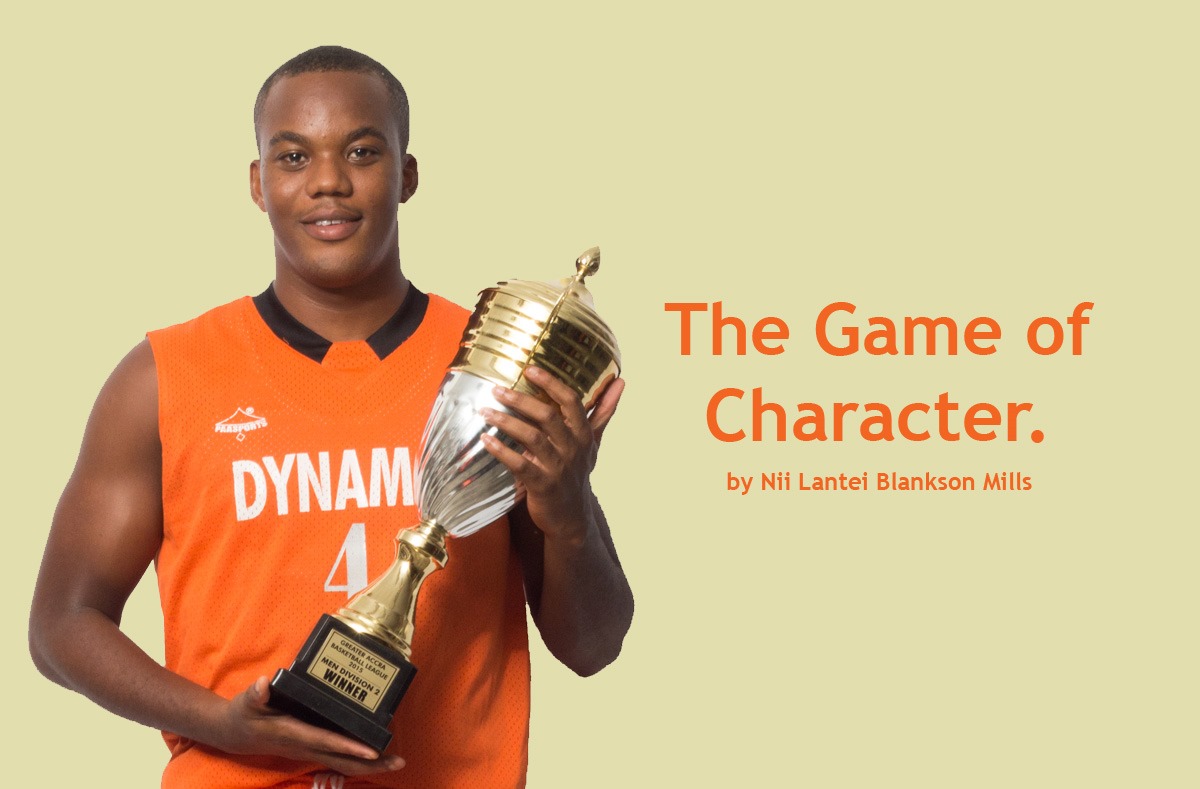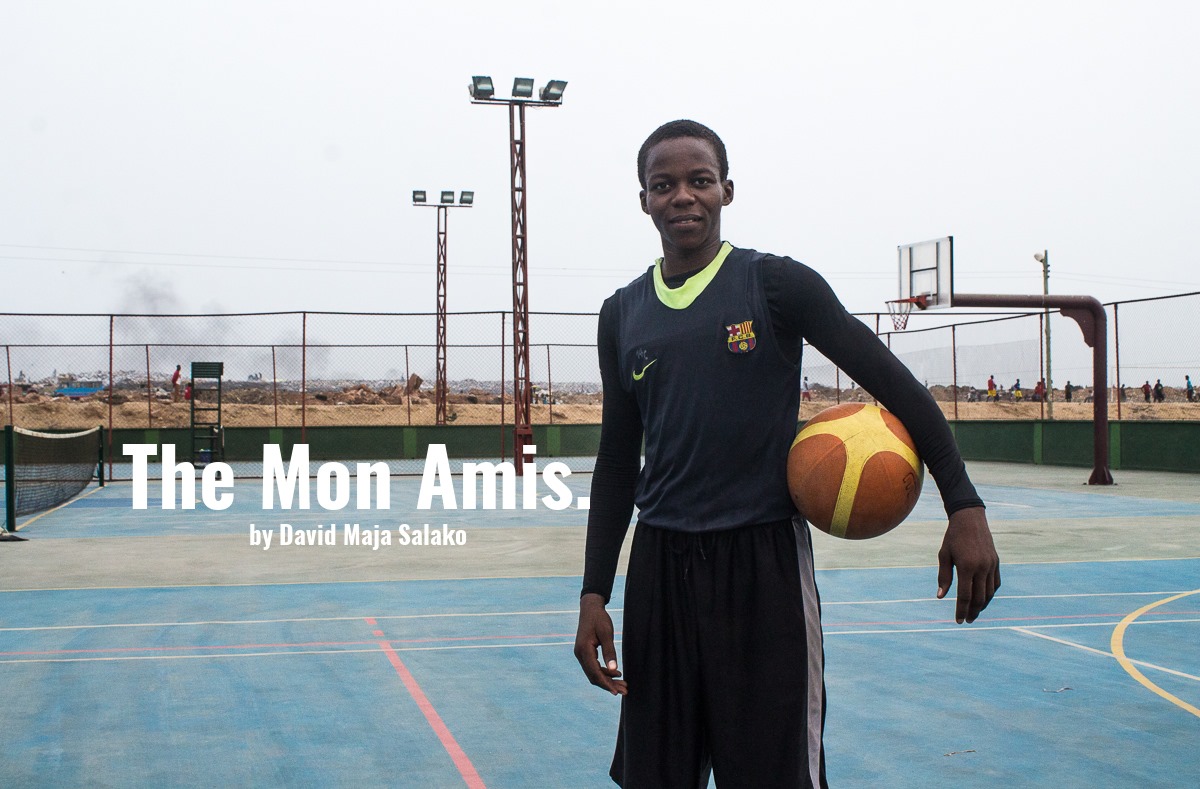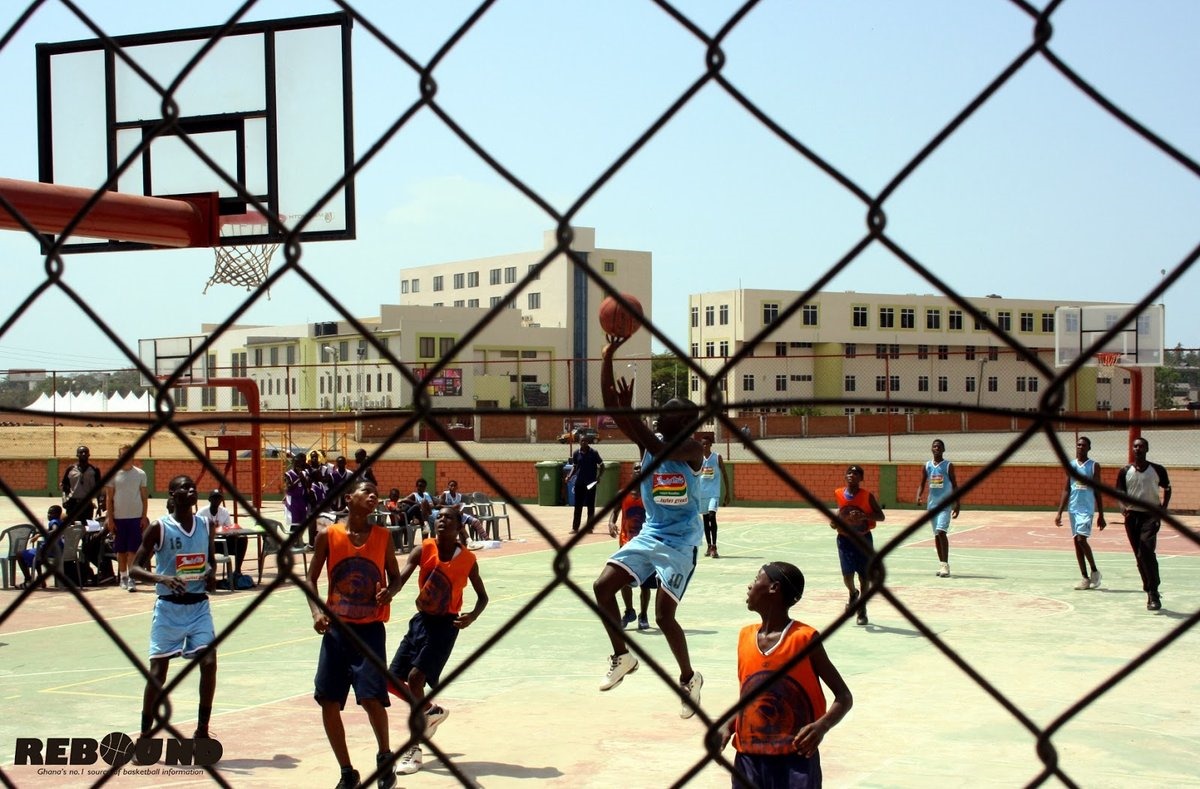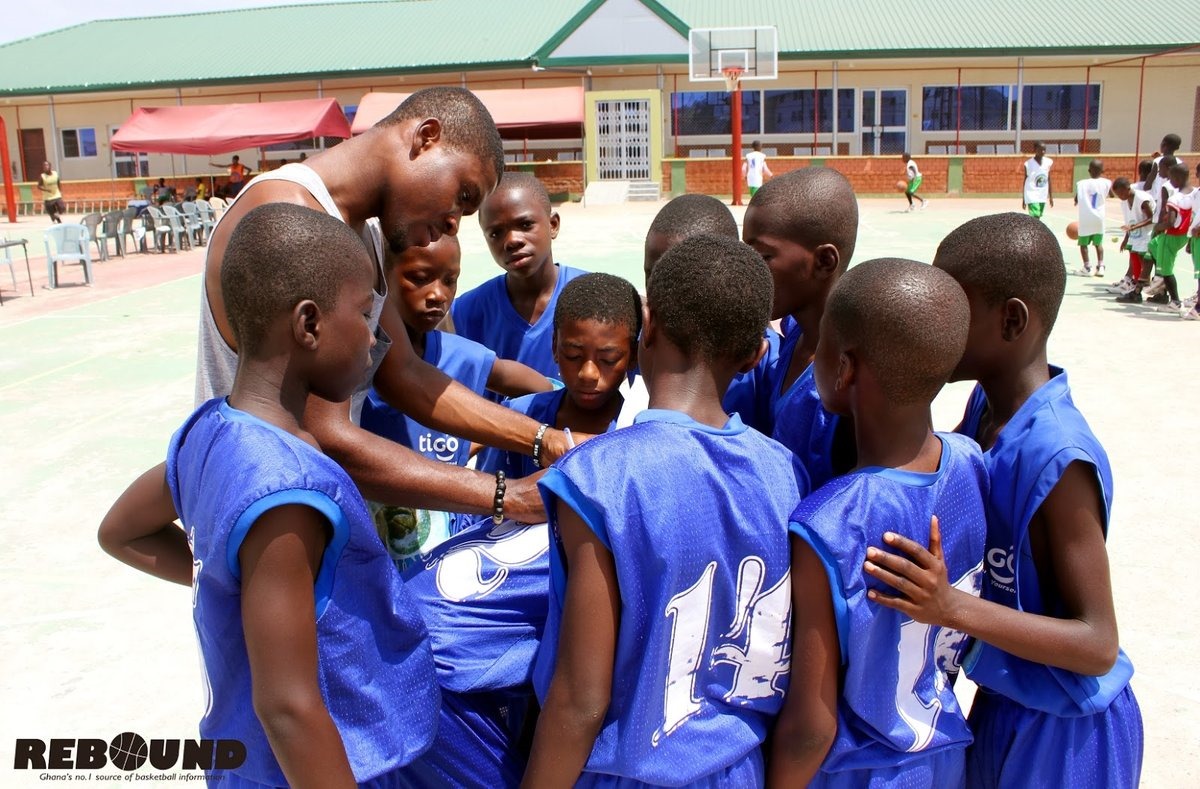Not forgetting our Coaches
...are our coaches up to the task?
A team without a coach is like sheep without a shepherd, even though they might survive, that's all they will ever be; survivors! It is always difficult for the team to achieve any feats, not even mentioning extraordinary ones without a father figure (ask the Sacksville Panthers).
You can agree with me that enough has been said of our referees. Now to the big question, are our coaches who complain of bad officiating good in their own field? There are a couple of questions that could be asked to help get to the answer of the first one. What are the roles of our coaches? how can one be said to be a good coach? what can the national / regional associations do to make our coaches the good coaches they need to be to help with the development of the game.
Opinions vary a lot on this subject, so do the responsibilities of coaches, depending on what level they are coaching at. For example coach Lawal Brimah can't / shouldn't / doesn't coach the Galaxy Academy kids the same way he coaches his CEPS team or his Accra Polytechnic students.
Now to what makes one a great coach. In many coaching can be compared to parenting. Obviously, no two parents will have the exact same role and relationship with their own children. Some children are very independent at a young age, needing only space, respect, and support to blossom. Other children constantly need attention and extrinsic motivators to push themselves through the day. Some children may be given the best possible support and upbringing possible yet still turn into “failures” as deemed by society. The connection is striking and I believe it adds insight into how we should evaluate coaches. For example, when a child finds success in life, does well on a test, gets into their dream college, or even makes good friends – do we credit the parents or child?
Back to the court, so who's the best coach in Ghana? Will you go for Lawal Brimah because he's coached at the national level and his team has turned the Accra league into a practice facility? or you'll want to argue that he got some of the best players there are in the country and so winning became an easy task for him? Then don't forget our Cape Coast Hoops brothers, they perennially put up teams that suffer their only loss to CEPS, is because of coaching that they too beat everybody? Then lets take a little trip back to the coach = parent analogy, who's the better parent? Coach Lawal who's kids bring home all the awards at the speech day(trophies) or Coach Kweku Jackson who's Holy Family manages to get an honorable mention from the principal because the managed to make it to the next class (D1) with not so much talent?

In sports, sometimes the greatest coaching jobs are sometimes done by those in no position to win a title. Isn’t the role of a coach to be the leader and maximize the talent and potential of each member of a team? Coaches can’t suit up and play (unless you’re player-coach like Feranmi Olunlunyo) so I really think you need to look at far more than just their Win-Loss record. Obviously, the best coaches should be winning more than they are losing, but it is a fallacy to judge the strength of coaching based on the talent on the team.
No question – coaching is an art form on its own. It is the blending of numerous different factors (scouting, media, player relations,...) Are they important? Teams need a guiding force, both a leader in terms of X’s and O’s as well as an emotional backbone. On a global level, there will never be one way to coach, just as there is no one way to parent. I believe the best coaches are those who can take their own talents and abilities and mesh them to fit the needs of their players and the fan base.
...Do we have good coaches in Ghana?
Ohene Djan Stadium, Accra - After a hectic 8 days of lectures and practical sessions, the FIBA module one coaching course was finally climaxed with a ceremony at the media center of the Ohene Djan stadium.
The event was graced by a couple of top shots in the Ghanaian sports and basketball fraternity most prominent being the C.E.O of the National Sports Council who spoke on behalf of the ministry of youth and sports.

Mr. Keita wearing the smock and sash presented to him
The day was filled with joy and many memories that will forever ring bells in the minds of all that partook in the course. From the awarding of certificates to the participants to the presentation of gifts to Mr. Keita Kabassan. From all indications Mr. Keita was very much over whelmed as he experienced the proverbial Ghanaian hospitality at its best through the numerous gifts he received as appreciation from participants, the sports council, the GBBA, the GABBA and some other individuals. He eventually had to call on his Ghanaian counterpart to help him say thank you to all present for being so kind to him during his stay here in Ghana.
Coaching Diaries
Day 7
This was supposed to be the final and fun day of the course. Participants had been grouped into four teams to play a mini tourney to mark the end of the course.
Even before the arrival of most participants, the younger guys had already started to take it out on each other in a 3 on 3 game on the unoccupied side of the court.
Class started on schedule and as planned, the first thing done was a review of the last groups performance with the kids. They got some good comments proving that they had learnt from all the other groups that had come before them.
Class then went on. Mr.Keita took the class through the FIBA mini basketball rules. This took about forty minutes. The instructor emphasized very much on the fact that mini basketball referees, should be more like teachers/parents on the court. They should also smile and keep the kids in an excited mood to still want to play the game.
Now to the real deal. Four teams, all play all. The games were exciting but still came with all the mouth work that goes with playground basketball. Most f the older guys proved that they still got game, getting some ooh-moments in the games. But then at the end of the day the winner didn't matter as the main aim for the day was to have fun.
Coaching Course Diaries
Day 6

Number of participants have increased up to about 24 by now. Class started on schedule with Coach Lawal taking the class through a lecture on defense. In his introduction he mentioned several importance of defense and at a point made reference to George Raveling's book, "War On The Boards" to back his argument on the importance of rebounding. This lasted for about 40 minutes. Mr. Keita occasionally chipped in some vital points along the way. Both instructors emphasized a lot on the importance of defense in the game and also for coaches to try to instill defense into kids at a young age.
"If you don't have good foot work you can't defend well" , Coach Lawal stated during his presentation. He went further to talk about various positions players should take when face with 2 on 1, 2 on 2 and 3 on 3 situations and also mentioned that kids should be thought good man defense since zone defense is not allowed in mini basketball. Mr. Keita then emphasized on not overloading kids by teaching them sagging defense, switching and rotation as it will rather cause more confusion on the court.

The class then went on a 20 minute break.
Class resumed and then Mr. Keita spent some time to teach the class about defensive transition. He spent the entire time on the court showing the various positions defensive players need to take went confronted by different kinds of offenses. The class went through 2 on 1 and 3 on 2. He also talked about how to retreat back quickly to defense after scoring to reduce fast break points, something he has realized most African countries don't do well at.
The kids from the Galaxy Basketball Academy then arrived for the day's practical session. Two groups took turns to take them through their training programs. The first was a group headed by Rubberman and included Salamatu Alhassan, a member of the national women's team coaching staff. The class regrouped as usual and comments and contributions were made on the group's performance. The next group, which was the last group also took time with the kids. This was a group which featured Winifred Tetteh as head coach. The class was adjourned after their session since was already past 6pm and class had to be closed. The discussion on their performance will be held on day 7.
Coaching Course Diaries
Day 5
Day 5 was a special day, the first part of which was used to hold the official opening ceremony for the course. This was due to the absence of some of the GBBA and GABBA executives who spent the weekend in Abidjan with the female national team.
Present were Mr. Agrah(the C.E.O of the N.S.C) who left the RSDO meeting to participate in the ceremony on a very short notice, Mr. Sarpei (secretary-genaral for the GBBA to the NSC) was the MC for the appreciably short occasion having already sat through a longer one earlier, I was quite pleased and several members of the Ghana basketball family.
Vice president of the GBBA, Iddrisu Gamel mentioned a shortspeech his appreciation to the sports council for helping the GBBA pay its affiliation fees to FIBA, a debt that was long standing until the arrival of Mr. Agrah as C.E.O.
Mr.Keita Kabassan, then took the floor and delivered a speech on behalf of the president of FIBA-Afriqe, Mr. Jose Luis Saez. He mentioned among a few things that, the African basketball governing body seek to help Ghana to develop and train coaches in the next 3-4 years. He told coaches taking the course also that, he is not here to impose any specific methods onto them but serve as a guide for them to be better coaches. He ended by saying coaches should always remember; "they're the bosses on the court".
Mr. Agrah took his trun to address the gathering. He started by thanking the LSC for giving the out their facility to be used for the course and entailed participants to to take full advantage of the course and learn the most from Mr. Keita.
A presentation of 100 rubber basketballs, 15 leather basketballs and copies of the book "basketball for young players" was made to the GBBA by Mr.Keita on behalf of FIBA-Afrique.

Mr. Keita presenting balls and books to Mr. Agrah
The media and quests took leave of us and class resumed after about 5 minutes break.
The instructor took the class through chapter 2 of the course book, which was on the planning of basketball activities. He talked extensively on the subject for about 30 minutes and involved the class in discussions as usual. The class went on a break as we waited for the kids to come in for the day's practical session.

evaluation time
Kids arrived and another group of participants took their turn at the practical session. The whole class sat together again to evaluate their colleagues performance. The class spent some 12 minutes talking after which Mr. Keita moved to the next topic which was how to introduce kids to 1 on 1 offense. After a few minutes he asked for some members of the class to volunteer and try out a practical session with the kids. The group 3 (Meme, Isaac and Feranmi) took the kids through some basics needed to be able to play 1 on 1 ball.The group led by Isaac, took the kids through moving and stopping without the ball, pivoting, keeping eyes on the target, ball faking and dribbling, topping and pivoting with the ball while keeping eyes on the hoop.
Coaching Course Diaries
Day 4
Finally!, a diary report not posted on the next day.
Participants and instructors started trickling in with about thirty minutes to 1pm but the class started around 1:21pm with 20 participants present. The class increased to 22 as others came in later.
Class got more intensive.
First talk of the day was on symbols used to draw basketball drills/plays which was handled by Mr. Keita Kabassan. He spent about 40 minutes to go through the various symbols, their uses and importance.

He allowed a lot of class participation during his explanations and then later called students to the board to draw out diagrams of drills they had written down in an assignment he gave the day before.
Meme Falconer took the floor first and spent about 10 minutes drawing out drills he'd written down in words while he explained them to the class. After him was Seth Okine a.k.a commando of C.E.P.S basketball. He also spent time to take the class through a different set of drills he'd written down.
The class went on a short recess during which the chairman of the Greater Accra Basketball Association, Mr. Baafi showed. He indulged in a convo with Mr. Keita and Coach Lawal. He spent the rest of the afternoon with us, just observing the class.

The resumes and Mr. Keita takes us through another topic; "coaching strategies". Within a short while the kids to be used by participants for their practical work arrived. The court was then cleared and the first group of student-coaches consisting of commando(CEPS), Martin(Kumasi), Antwi(Police) and Stephen(Police) took to the floor. They took the kids through defensive sliding and passing.
Mr. Iddrisu Gamel veep of the GBBA in charge of techincal development shows up to also observe proceedings.
The whole class converged to analyse their colleagues' performance with the kids. A lot of concerns were raised and corrections were made where necessary. The second group also made up of Grace(U.E.W), Isaac(Dynasty Hoops), Feranmi(DC Dynamics) and Allon(HCH) took the kids through shooting. They spent about 15-20 minutes with the kids and the class converged again for an analysis of their work. Mr. Keita and Coach Lawal added their final remarks and the class was adjourned.

Coach Lawal demonstrates a drill to the class
Coaching Course Diaries
Day 3
Finally the class moved to the basketball court at the West African HQ of the Church of Latter Day Saints located at 57 Independence Avenue, North Ridge, Accra.
The day started as usual with a prayer but this time from nobody else but yours truly. About eighteen participants were present as at the start of class. A couple of guys joined today including Tema Youth coach, Emmanuel Quaye a.k.a Rubberman.
The first part of class today was a presentation by Coach Lawal on Mini Basketball. He took the class through how to handle different age groups during the Basketball teaching process. It was broken down into 6-7yrs, 8-9yrs and then 10-12yrs. Some of his main concerns were avoiding complex drills when teaching kids and also not putting kids through too much intensive physical activities as it disrupts their bodies ability to grow well at that tender age.

the class in session
Mr. Keita occasionally inserted some points during Coach Lawal's talk. He spoke of allowing kids some room during a practice even when they make mistakes and then getting close to them and correcting them instead of yelling at kids.
We hit the court for the first time for Coach Lawal to demonstrate some of the drills he made mention of. The class seemed to gain more understanding for the practical session as almost everybody took turns at the drills.
The class then took a 30-minute break during which a gift of soft drinks from an unidentified classmate was shared for refreshment.
Class resumes with another lecture on "how to organize training session" by Mr.Keita.This took about 30 minutes at the end of which he ask the class to come up with a 30-minute training session on passing. the class spent some time to discuss what they had written down then we hit the court again.
Fun, fun, fun... that's exactly what the second practical session was all about. As four course mates were made to team up as a coaching body and were given four other course mates to act as kids. The coaches were to run a training session on shooting and dribbling using the lessons they had just been taught. The course instructor just stood back and observed as they took turns to perform their responsibilities. Rubberman made the class more interesting as he acted like a kid who'd never played the game and committed a lot of errors which the coaches had to fix. Mr. Keita made it know he was quite impressed about the performance during his closing remarks. the class hurdled up and closed the day with a big TEAMWORK shout on three!

Mr. Keita places a lot of emphasis on teamwork
Coaching course diaries
Day 2
I need to really say sorry for posting a day 2 diary on the morning of day 3; two days later. But fact is my PC just gave me some tough time for the past two days, rendering me quite unproductive for the weekend.
Now to what happened on Saturday.
The day started with a prayer again, this time with sixteen of the participants present. Mr Keita Kabassan started the first session of the day's class by indulging participants in somewhat of a basketball conversation, something he said he did just to test the level of the participants understanding of the game.
The Guinean instructor gave participants two 5-minute tests, the first one to write down the advantages of zone defense and the second the disadvantages. He then got the class to discuss the various points participants had written down.
Almost to the end of the session, Mr. Addo-Ashong, president of the GBBA showed up. He spent some time with the class and had a little chat with Mr. Kabassan then took leave of the class just at the beginning of the second session.
Full lessons then started in the second session after a 30-minute break. The topics covered were on Saturday included:
- Rights of young players
- Health enhancement through the practice of basketball
- Development of personal and social values
- Developments of psychological resources
- Positive experiences
- Athletic development
- Coaches' working style


